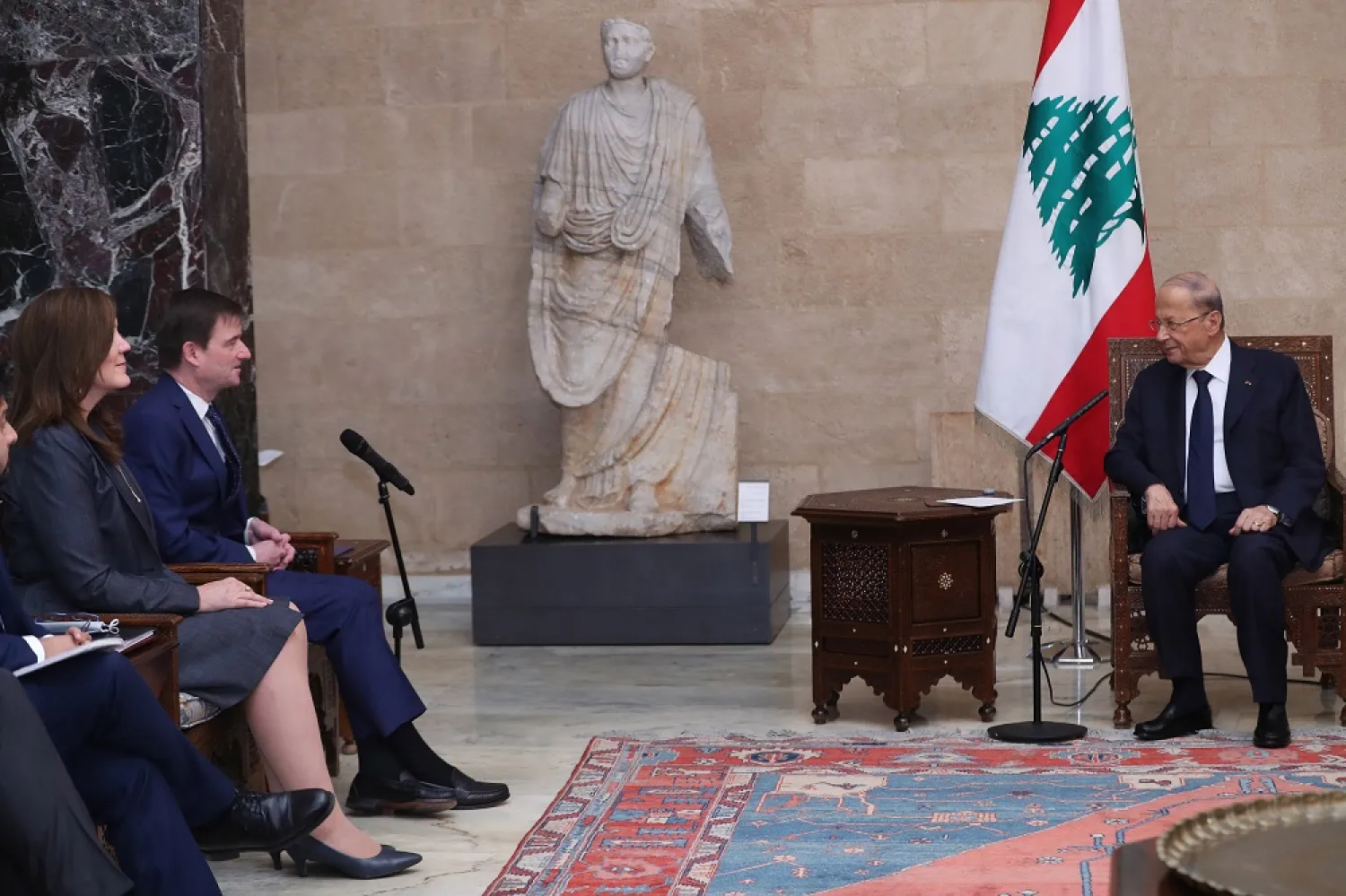Lebanese President Michel Aoun’s failure to schedule a date for binding parliamentary consultations to name a new premier has raised questions among political circles in the country that is still reeling from the catastrophic blast at Beirut port earlier this month.
They wondered whether he was delaying the call because the Special Tribunal for Lebanon was set to deliver its verdict on Tuesday or whether he was simply buying time in order to allow his son-in-law and Free Patriotic Movement leader MP Gebran Bassil to regain the political upper hand.
The STL is looking into the 2005 assassination of former Prime Minister Rafik Hariri, who was killed in a massive car bomb attack in Beirut. Four Hezbollah members have been indicted and tried in absentia for the crime.
Political circles told Asharq Al-Awsat that Aoun is claiming that he needs to hold political consultations before setting the date for the parliamentary consultations. They believe that this is just an excuse to promote Bassil and his proposal for the formation of a government comprised of main political parties.
The sources revealed that Aoun’s talks have so far covered his allies, not the opposition, who did not seem receptive of his idea of a government of main political blocs. It remains to be seen how long he will continue to advocate this idea before yielding to the demand of Speaker Nabih Berri and Hezbollah chief Hassan Nasrallah for the formation of a national unity government.
Moreover, Hale appeared uneasy with the meetings US Under-Secretary of State for Political Affairs David Hale held in Beirut last week, particularly since Bassil was excluded from them.
The United States apparently now views Bassil and his ally, Hezbollah, in the same light. The Iran-backed party, which is designated as terrorist by Washington, was naturally not part of the American official’s meetings.
No official explanation has been given as to why Hale did not meet Bassil, even though they enjoy good personal ties. The FPM chief alleged that he did not request a meeting with him.
Such claims are easily refuted because Bassil knows very well that Hale chooses whom he meets and whom he chooses not to.
The political sources stressed that Bassil’s exclusion is a sign that the American administration now views him as one of the main Lebanese officials who provide cover for Hezbollah’s policies in Lebanon and the region.









